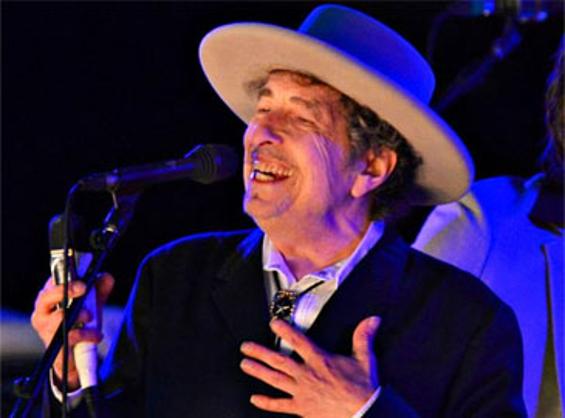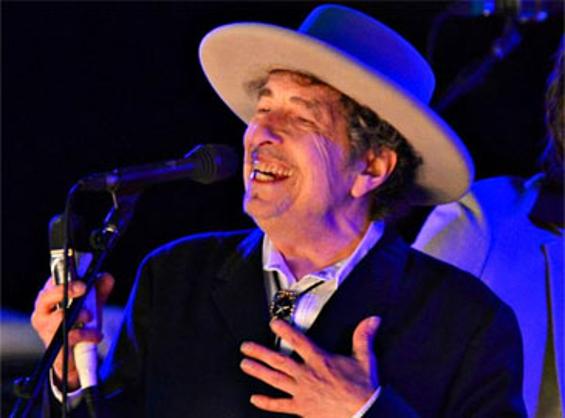Bob Dylan wins Nobel literature prize
Fri 14 Oct 2016, 12:15:10
Singer and songwriter Bob Dylan, one of the world’s most influential musicians, was awarded the Nobel Prize in Literature on Thursday for “having created new poetic expressions within the great American song tradition,” in the words of the Swedish Academy.
He is the first American to win the prize since novelist Toni Morrison, in 1993. The announcement, in Stockholm, was a surprise: Although Dylan, 75, has been mentioned often as having an outside shot at the prize, his work does not fit into the literary canons of novels, poetry and short stories that the prize has traditionally recognised.
“Mr Dylan’s work remains utterly lacking in conventionality, moral sleight of hand, pop pabulum or sops to his audience,” Bill Wyman, a journalist, wrote in a 2013 Op-Ed essay in The New York Times arguing for Dylan to get the award. “His lyricism is exquisite; his concerns and subjects are demonstrably timeless; and few poets of any era have seen their work bear more influence.”
Sara Danius, a literary scholar and the permanent secretary of the 18-member Swedish Academy, which awards the prize, called Dylan “a great poet in the English-speaking tradition” and compared him to Homer and Sappho, whose work was delivered orally.
Asked if the decision to award the prize to a musician signaled a broadening in the definition of literature, Danius jokingly responded, “The times they are a changing, perhaps,” referencing one of Dylan’s songs.
Dylan emerged on the New York music scene in 1961 as an artiste in the tradition of Woody Guthrie, singing protest songs and strumming an
acoustic guitar in clubs and cafes in Greenwich Village. But from the start, Dylan stood out for dazzling lyrics and an oblique songwriting style that made him a source of fascination for artistes and critics.
acoustic guitar in clubs and cafes in Greenwich Village. But from the start, Dylan stood out for dazzling lyrics and an oblique songwriting style that made him a source of fascination for artistes and critics.
In 1963, the folk group Peter, Paul and Mary reached No 2 on the Billboard pop chart with a version of his song Blowin’ in the Wind with ambiguous refrains that evoked Ecclesiastes.
Within a few years, Dylan was confounding the very notion of folk music, with ever more complex songs and moves toward a more rock ‘n’ roll sound. In 1965, he played with an electric rock band at the Newport Folk Festival, stewing controversy from folk purists who accused him of selling out.
After reports of a motorcycle accident in 1966 near his home in Woodstock, New York, Dylan withdrew further from public life but remained intensely fertile as a songwriter. His career has continued to surprise fans and critics and has led to one of the most densely analysed bodies of work in the history of pop music. His 1975 album Blood on the Tracks was interpreted as a supremely powerful account of the breakdown of a relationship, but just four years later, the Christian themes of Slow Train Coming divided critics. His most recent two albums were chestnuts of traditional pop associated with Frank Sinatra.
Since 1988, Dylan has toured almost constantly, inspiring an unofficial name for his itinerary, the Never Ending Tour. Last weekend, he played the first of two performances at Desert Trip, a festival in Indio, California, that also featured the Rolling Stones, Paul McCartney and other stars of the 1960s.
No Comments For This Post, Be first to write a Comment.
Most viewed from International
Most viewed from World
AIMIM News
Latest Urdu News
Most Viewed
May 26, 2020
Do you think Canada-India relations will improve under New PM Mark Carney?
Latest Videos View All
Like Us
Home
About Us
Advertise With Us
All Polls
Epaper Archives
Privacy Policy
Contact Us
Download Etemaad App
© 2025 Etemaad Daily News, All Rights Reserved.





.jpg)






.jpg)
.jpg)








.jpg)
.jpg)
.jpg)
.jpg)
.jpg)

















